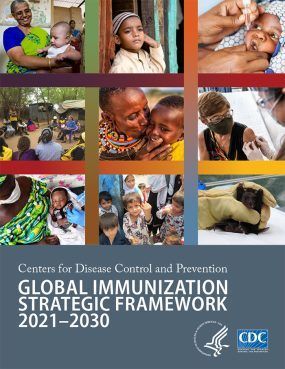Vaccinations have played a crucial role in public health by preventing the spread of infectious diseases and reducing mortality rates worldwide. With the rise of globalization, the need for global vaccination initiatives has intensified. This article explores the significance of such initiatives and their positive impact on promoting public health worldwide.
The Importance of Global Vaccination Initiatives
Global vaccination initiatives aim to ensure that individuals around the world have access to life-saving vaccines. These efforts are crucial for several reasons:
1. Disease Prevention and Eradication
Vaccinations have been instrumental in preventing and eradicating diseases such as smallpox, polio, and measles. Global vaccination initiatives help reach vulnerable populations and reduce the risk of outbreaks, ultimately saving lives and improving public health.
2. Immunization Equity
By promoting global vaccination initiatives, governments, international organizations, and non-profit entities strive to ensure that individuals in all corners of the world have equal access to vaccines. This helps bridge the immunization gap, reducing health disparities and promoting equity in public health.
3. Disease Surveillance and Data Sharing
Vaccination initiatives foster collaboration and information-sharing among countries, enabling efficient disease surveillance and control. By monitoring vaccine-preventable diseases on a global scale, initiatives can identify patterns, implement timely interventions, and prevent the international spread of infections.
4. Economic Benefits
Vaccination programs have substantial economic benefits. By preventing illnesses and reducing healthcare expenses, they contribute to economic growth and development. Moreover, the prevention of widespread infectious diseases helps maintain stable workforces, reducing productivity losses and socioeconomic disruptions.
Successful Global Vaccination Initiatives
Several notable global vaccination initiatives have made a significant impact on public health:
1. World Health Organization’s Expanded Program on Immunization (EPI)
The EPI, established in 1974, has been instrumental in expanding global access to vaccines. It focuses on immunizing children against diseases such as tuberculosis, diphtheria, pertussis, tetanus, polio, and measles. The EPI’s efforts have played a vital role in reducing vaccine-preventable diseases worldwide.
2. Gavi, the Vaccine Alliance
Gavi, launched in 2000, is a public-private partnership that aims to increase access to vaccines in the world’s poorest countries. Through strategic partnerships, innovative financing mechanisms, and supply chain strengthening, Gavi has significantly improved immunization rates, saving millions of lives.
3. COVAX Facility
COVAX, a global initiative launched in response to the COVID-19 pandemic, aims to ensure fair and equitable access to COVID-19 vaccines worldwide. It supports countries in their efforts to vaccinate their populations, regardless of income levels, to control the spread of the virus and minimize its impact on public health and economies.
Challenges and Future Outlook
While global vaccination initiatives have achieved remarkable success, several challenges remain:
1. Vaccine Hesitancy and Misinformation
Vaccine hesitancy, fueled by misinformation and distrust, poses a significant challenge. Addressing this issue requires effective communication strategies, education, and building trust between healthcare providers, communities, and decision-makers.
2. Vaccine Access and Distribution
Ensuring equitable access to vaccines and establishing robust distribution networks is crucial. Developing countries often face resource limitations, requiring assistance from international initiatives to overcome logistical and financial barriers.
3. Emergence of New Infectious Diseases
The ongoing emergence of new infectious diseases highlights the importance of proactive measures. Global vaccination initiatives should enhance preparedness, research, and development of vaccines against evolving pathogens to protect public health effectively.
In conclusion, global vaccination initiatives are vital for promoting public health worldwide. These initiatives facilitate disease prevention, improve immunization equity, enhance data sharing, and yield significant economic benefits. With continued efforts and collaboration, the world can combat existing and emerging infectious diseases, safeguarding the well-being of communities across the globe.
